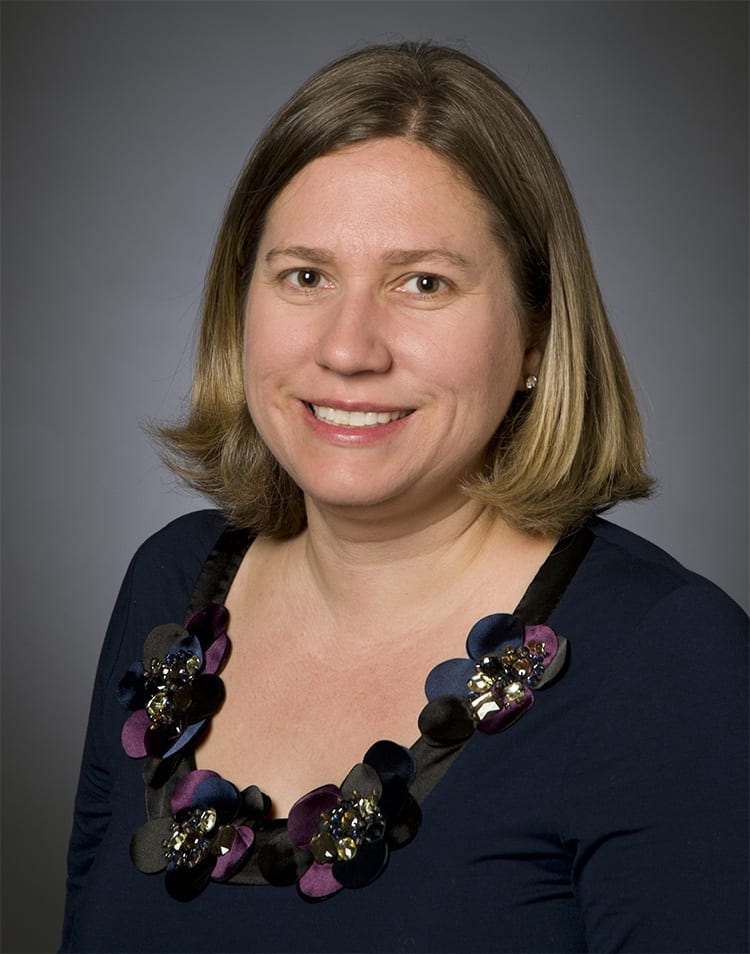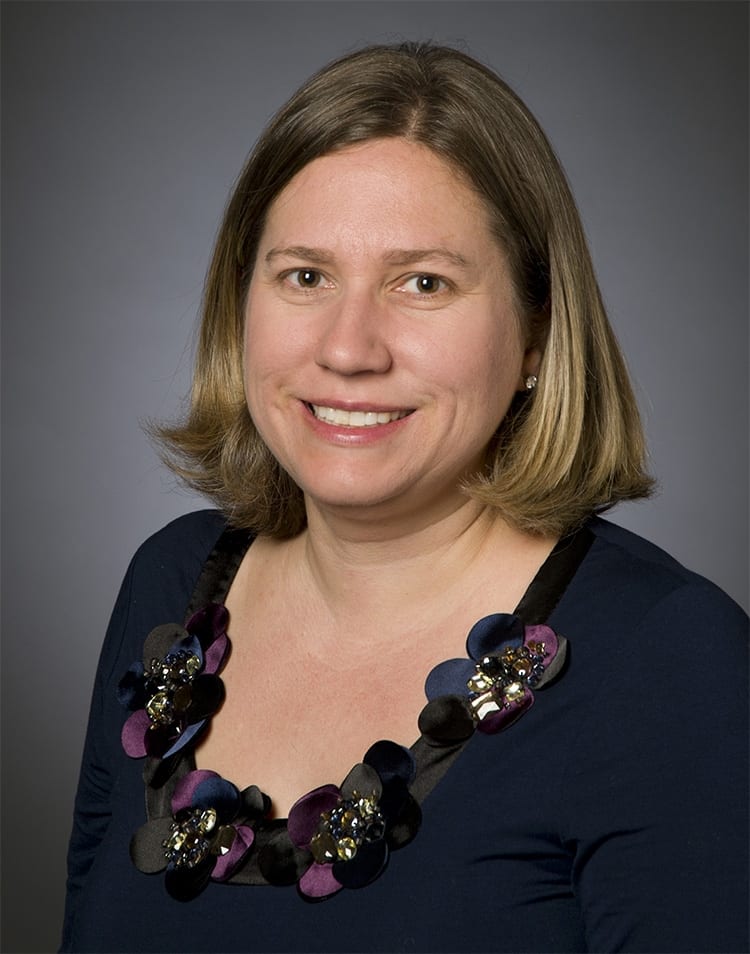Anna Michel Receives Gulf Research Program Early-Career Research Fellowship
 Anna Michel is among eight scientists awarded one of the Gulf Research Program Early-Career Research Fellowships, which are part of the program’s 30-year mission to enhance oil system safety and the protection of human health and the environment in the Gulf of Mexico and U.S. outer continental shelf regions.
(Tom Kleindinst, Woods Hole Oceanographic Institution )
Anna Michel is among eight scientists awarded one of the Gulf Research Program Early-Career Research Fellowships, which are part of the program’s 30-year mission to enhance oil system safety and the protection of human health and the environment in the Gulf of Mexico and U.S. outer continental shelf regions.
(Tom Kleindinst, Woods Hole Oceanographic Institution ) June 24, 2015
Anna Michel, an assistant scientist in the Applied Ocean Physics and Engineering Department at Woods Hole Oceanographic Institution (WHOI), was chosen by the National Academy of Sciences (NAS) to receive a 2015 Gulf Research Program Early-Career Research Fellowship.
Michel is among eight scientists awarded one of the competitive fellowships, which are part of the program’s 30-year mission to enhance oil system safety and the protection of human health and the environment in the Gulf of Mexico and U.S. outer continental shelf regions.
“We had an impressive set of applicants for this year’s awards, and the members of this first class are just outstanding,” said Tom Hunter, chair of the Gulf Research Program advisory board.
The Early-Career Research Fellowships recognize professionals at the critical pre-tenure phase of their careers for exceptional leadership, past performance, and potential for future contributions to improving oil system safety, human health, or the environment in the Gulf region.
Michel’s research focuses on advancing environmental observations through the development and deployment of novel optical sensors. She designs, builds, and deploys advanced laser-based chemical sensors that are capable of measuring trace concentrations in gaseous and aqueous environments in locations ranging from the deep sea to Arctic environments, using remotely operated vehicles. New sensors are critical for addressing ocean science questions in such areas as climate change chemistry and ocean acidification, for examining remediation efforts, for establishing baseline chemistry data, and for monitoring anthropogenic and natural changes in complex and often extreme locations.
“The Gulf of Mexico itself is an exciting place to work,” Michel said. “Working with a team of other scientists, we recently deployed a deep sea laser spectrometer at a brine pool in the Gulf. I am very interested in advancing laser-based sensors for oceanography and especially in making them smaller and easier to deploy.”
The fellows will each receive $76,000, in the form of a two-year grant paid to their institutions, for research expenses and professional development. To foster leadership development, they will also receive professional guidance from two mentors: a senior faculty member at their home institution and a senior expert in their field, to be appointed at a later date.
“I am excited to receive this fellowship because it not only provides me funding for research and professional development, but also provides me with two mentors,” Michel said. “I am grateful that Andone Lavery has agreed to serve as my WHOI mentor for this fellowship, as she is an incredible role model.”
“Anna is enviably easy to mentor: she listens to advice and implements solutions thoughtfully and in a timely fashion,” added Lavery, an associate scientist in the
Applied Ocean Physics and Engineering Department. “Leaning on her deep expertise in developing in-situ sensor technologies, broad scientific interests, and easy-going professional approach to research, she has successfully fostered many collaborative research opportunities.”
Michel earned her Ph.D. in Mechanical and Oceanographic Engineering from the MIT-WHOI Joint Program in 2007. From 2007 to2012, she worked at the Center for Mid-Infrared Sensing for Health and the Environment at Princeton University as a postdoctoral fellow and an associate research scholar. Michel joined the staff of Woods Hole Oceanographic Institution in 2012 as an assistant scientist.
In addition to the 2015 Early-Career Research Fellowships, NAS also awarded four Science Policy Fellowships focused on leadership development. This year’s fellows will spend one year on the staff of a state environmental agency and regional offices of relevant federal agencies in the Gulf region.
“Both fellowships emphasize mentoring, which we believe is an important part of building leadership capacity in young scientists,” said Maggie Walser, fellowships manager of the Gulf Research Program.
The $500 million Gulf Research Program was established by agreements arising from the settlement of the U.S. government’s criminal complaints following the 2010 Deepwater Horizon explosion, and seeks to improve understanding of the interconnecting human, environmental, and energy systems of the Gulf of Mexico and other U.S. outer continental shelf areas, and foster application of these insights to benefit Gulf communities, ecosystems, and the nation. The Gulf Research Program will fund studies, projects, and other activities using three broad approaches: research and development, education and training, and environmental monitoring.
The National Academy of Sciences, National Academy of Engineering, Institute of Medicine, and National Research Council make up the National Academies. They are private, independent nonprofit institutions that provide science, technology, and health policy advice under a congressional charter granted to NAS in 1863. The National Research Council is the principal operating arm of the National Academy of Sciences and the National Academy of Engineering. For more information, visit http://national-academies.org.
The Woods Hole Oceanographic Institution is a private, non-profit organization on Cape Cod, Mass., dedicated to marine research, engineering, and higher education. Established in 1930 on a recommendation from the National Academy of Sciences, its primary mission is to understand the ocean and its interaction with the Earth as a whole, and to communicate a basic understanding of the ocean’s role in the changing global environment. For more information, please visit www.whoi.edu.

